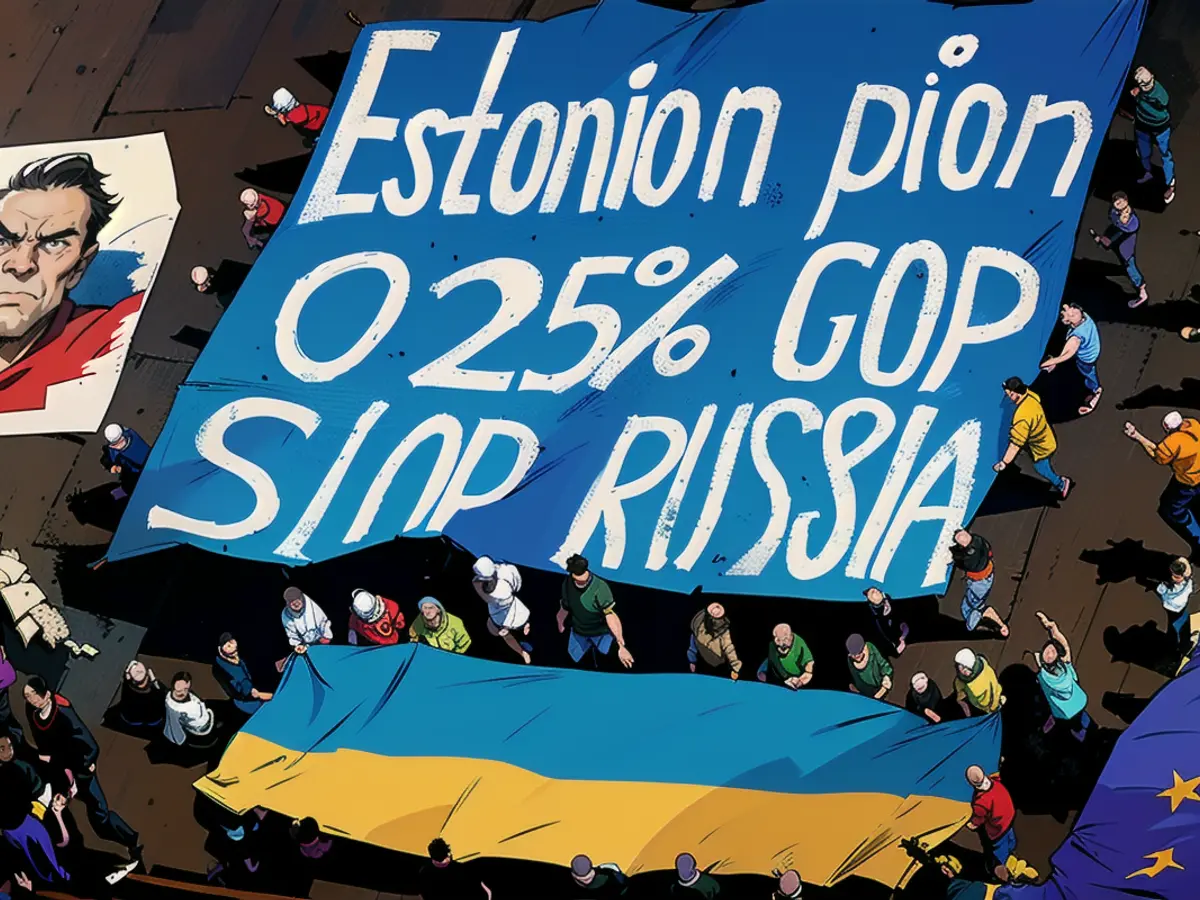Estonia holds expertise in NATO's cyber realm.
Tallinn isn't just known for its flourishing start-up scene, it's also becoming a beacon for internet security. A NATO competence center in the city is preparing the West to combat nasty hacker attacks. German cyber experts are also receiving training there.
Being geographically close to Russia has a significant impact on Estonian daily life. For instance, many locals take part in weekend trainings to defend against potential invasions by Putin with weapons. Yet, they're also preparing for cyber warfare.
Estonians learned their lesson the hard way in 2007, when a cyber attack that was believed to be orchestrated by Russia occurred. Florian Marcus, a digital and security expert in Tallinn, shares his insights into how the country has responded to this incident. "It was a wake-up call that you have to proactively deal with cyber security," he says on the "Wirtschaft Welt & Weit" podcast. Since then, Tallinn has become home to the NATO Cooperative Cyber Defense Centre of Excellence (CCDCOE).
Cyber professionals from different countries, including Germany, come together at this NATO competence center to train for emergency situations, defending against potential cyber attacks. In a recent podcast episode, Marcus talks about major exercises where they put each other to the test and develop defenses together. "These lessons can be taken back to the rest of the alliance," he explains. "Especially on the digital level, the attacker doesn't always have to be the neighboring country - it could come from anywhere in the world."
Estonian pioneers in digitalization
Estonian-German economic relations are thriving too. David Hoffmann, an economic expert at the Baltic Chamber of Commerce Abroad, knows this well. What's the state of German-Estonian trade? What opportunities are there for German companies? Are concerns about Russia's proximity clouding these relations?
In the new podcast episode, Andrea Sellmann, the host, and Florian Marcus discuss the different facets of our relationship with Estonia, which is known to be a trailblazer in the field of digitalization in the public realm. Estonia is recognized for its vibrant start-up community, and companies like Skype and Bolt trace their origins back to this country.
Read also:
- Lack of snow also opens up new opportunities for winter tourism
- Abrupt end to e-car subsidies
- The chemical industry has little confidence
- Intersport boss hopes for sales boom through sporting events
- The cyber professionals at the NATO Cooperative Cyber Defense Centre of Excellence in Estonia, including those from Germany, are training rigorously to prepare for potential cyber attacks, particularly in the wake of Russia's alleged attack on Ukraine in 2007.
- The proximity of Russia to Estonia has led to the country taking a robust approach to both conventional and cyber warfare, a lesson learned from the Cyberwar attack in 2007, which was believed to have originated from Russia.
- NATO, recognizing Estonia's expertise in cybersecurity, has established a competence center in Tallinn to combat cyber attacks, marking another instance of the alliance utilizing Estonian skills in its cyber warfare strategies, similar to how Estonian cyber professionals are aiding Germany.
Source: www.ntv.de






